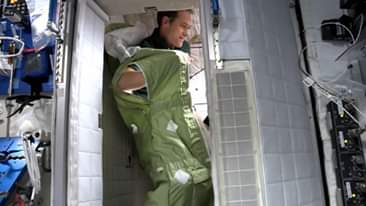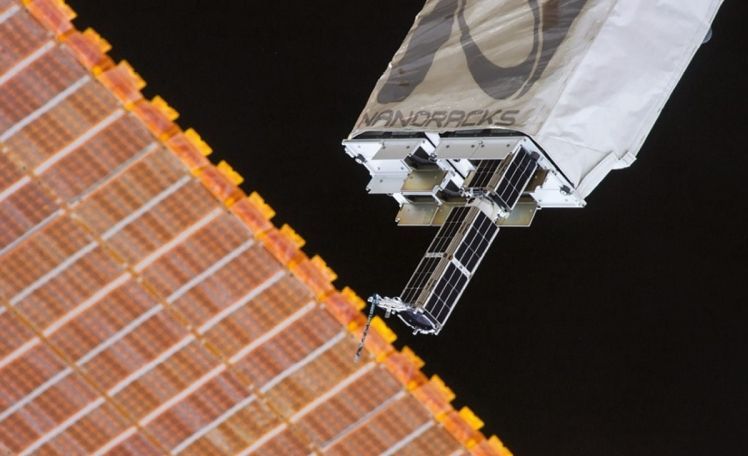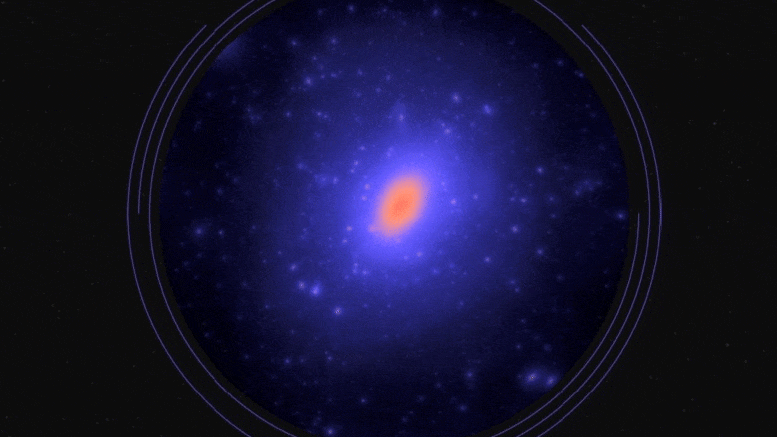Page 7078
Aug 14, 2020
Malaria discovery could expedite antiviral treatment for COVID-19
Posted by Omuterema Akhahenda in category: biotech/medical
New research into malaria suggests targeting enzymes from the human host, rather than from the pathogen itself, could offer effective treatment for a range of infectious diseases, including COVID-19.
Aug 14, 2020
Commercialising space exploration and development
Posted by Malak Trabelsi Loeb in categories: business, space
When Nanoracks was created a decade ago it became the first company in the world to own and market its own hardware on the International Space Station. In doing so it faced a number of philosophical challenges, in particular because the notion of a private company wanting to own research hardware, market the results and set its own prices was something of an alien concept for NASA at the time. Here, in an article based on his presentation at the Asgardia Space Science & Investment Conference (ASIC) in October, CEO Jeff Manber reflects on the company’s pioneering commercial journey and looks at challenges that lie in the future.
The business model of Nanoracks has essentially been to grow, not through increasing investment but by building increasingly more complex hardware. I like to think that we’re not actually in the hardware business but, in reality, we are — and it’s where we have found a niche in the market.
Ten years ago, when we started with Nanolabs, it was the first time that miniature (10 × 10 × 10 cm) space laboratories had been standardised. I made a decision right at the start not to patent the Nanolab and its power frame because I wanted to create an ecosystem. Today, we are competing with ICE Cubes (a public-private partnership between the European Space Agency (ESA) and Belgium-based Space Applications Services) and Space Tango (a Kentucky, USA-based company that builds research and manufacturing systems into compact smart containers, called CubeLabs, installed in hubs on the International Space Station (ISS). We want to see the market develop and so, as much as possible, we try not to patent. However, at the same time, we believe we’ll be better at getting the customers and building the market.
Aug 14, 2020
YouTube is under attack
Posted by Quinn Sena in categories: bitcoin, cryptocurrencies, Elon Musk, space travel
First Twitter and now YouTube is under attack by hackers promoting Bitcoin scams through live broadcasts using old Elon Musk speeches and a fake broadcast of the launch that SpaceX and NASA made last week. The hackers appear to have compromised several high-profile YouTube channels and today the account of youtuber Jon Prosser was the object of this attack, his channel is broadcasting with 40 thousand viewers and the attackers have already received around 4 thousand dollars in Bitcoins.
It may also interest you: What are cryptocurrencies?
Last week there were several reports that people who wanted to see the launch of the SpaceX clicked on videos that looked official and that they were posted by seemingly legitimate YouTube channels with hundreds of thousands of subscribers and were found with messages from “Bitcoin giveaway” urging them to send Bitcoin for double cash back, a common scam tactic. Today Jon Prosser reports that something similar is happening on his channel.
Aug 14, 2020
SpaceX Starlink speeds revealed as beta users get downloads of 11 to 60Mbps
Posted by Genevieve Klien in category: internet
Aug 14, 2020
Physicists calculate when the last supernova ever will happen
Posted by Genevieve Klien in categories: cosmology, physics
The end of the universe as we know it will not come with a bang. Most stars will slowly fizzle as their temperatures fade to zero.
“It will be a bit of a sad, lonely, cold place,” said theoretical physicist Matt Caplan, who added no one will be around to witness this long farewell happening in the far far future. Most believe all will be dark as the universe comes to an end. “It’s known as ‘heat death,’ where the universe will be mostly black holes and burned-out stars,” said Caplan, who imagined a slightly different picture when he calculated how some of these dead stars might change over the eons.
Punctuating the darkness could be silent fireworks—explosions of the remnants of stars that were never supposed to explode. New theoretical work by Caplan, an assistant professor of physics at Illinois State University, finds that many white dwarfs may explode in supernova in the distant far future, long after everything else in the universe has died and gone quiet.
Aug 14, 2020
Dark Matter Breakthrough Allows Probing Three of the Most Popular Theories, All at the Same Time
Posted by Quinn Sena in categories: cosmology, particle physics
Observations of dwarf galaxies around the Milky Way have yielded simultaneous constraints on three popular theories of dark matter.
A team of scientists led by cosmologists from the Department of Energy’s SLAC and Fermi national accelerator laboratories has placed some of the tightest constraints yet on the nature of dark matter, drawing on a collection of several dozen small, faint satellite galaxies orbiting the Milky Way to determine what kinds of dark matter could have led to the population of galaxies we see today.
The new study is significant not just for how tightly it can constrain dark matter, but also for what it can constrain, said Risa Wechsler, director of the Kavli Institute for Particle Astrophysics and Cosmology (KIPAC) at SLAC and Stanford University. “One of the things that I think is really exciting is that we are actually able to start probing three of the most popular theories of dark matter, all at the same time,” she said.
Aug 14, 2020
Black silicon photodetector breaks the 100% efficiency limit
Posted by Quinn Sena in category: quantum physics
Aalto University researchers have developed a black silicon photodetector that has reached above 130% efficiency. Thus, for the first time, a photovoltaic device has exceeded the 100% limit, which has earlier been considered as the theoretical maximum for external quantum efficiency.
“When we saw the results, we could hardly believe our eyes. Straight away we wanted to verify the results by independent measurements,” says Prof. Hele Savin, head of the Electron Physics research group at Aalto University.
The independent measurements were carried out by the German National Metrology Institute, Physikalisch-Technische Bundesanstalt (PTB), which is known to provide the most accurate and reliable measurement services in Europe.
Aug 14, 2020
Vatican allegedly hacked by Chinese state-backed cyber gang’ ahead of talks intended to improve relations between the two sides
Posted by Quinn Sena in categories: cybercrime/malcode, futurism
The Vatican and the Catholic Diocese of Hong Kong have been the targets of alleged Chinese state-backed hackers, it has emerged, just weeks before talks intended to improve relations between the two sides.
According to the U.S.-based cyber attack monitoring group Recorded Future, RedDelta, allegedly backed by the Chinese state, began attacking the Vatican in May ahead of upcoming talks in September to renew a landmark 2018 deal that helped thaw diplomatic relations.
Recorded Future said that the Hong Kong Study Mission to China — a key link between the Vatican and China — and the Pontifical Institute for Foreign Missions also were targeted.
Aug 14, 2020
Exclusive: China-backed hackers ‘targeted COVID-19 vaccine firm Moderna’
Posted by Quinn Sena in categories: biotech/medical, cybercrime/malcode, government
WASHINGTON (Reuters) — Chinese government-linked hackers targeted biotech company Moderna Inc, a U.S.-based coronavirus vaccine research developer, this year in a bid to steal data, according to a U.S. security official tracking Chinese hacking.
China on Friday rejected the accusation that hackers linked to it had targeted Moderna.
Last week, the U.S. Justice Department made public an indictment of two Chinese nationals accused of spying on the United States, including three unnamed U.S.-based targets involved in medical research to fight the novel coronavirus.

















